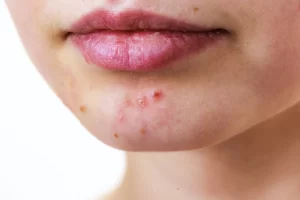
Dental Problems Can Lead to Serious Health Complications If Left Untreated
An essential element of overall wellbeing, dental problems can pose serious threats if left untreated and promptly.
Many dental diseases can be avoided through regular brushing, diet and check-ups with your dentist, yet it’s essential that you are aware of common dental problems that could develop to better prevent them.
Tooth Decay
Tooth decay typically begins as a small cavity, or “cavity,” which develops into an infected “caries” hole (dental caries). As this grows, dentinal tubules that provide passage to the nerve may become exposed, leading to mild to sharp pain that worsens with sweet, hot or cold food or beverages and eventually becoming constant. Left untreated, tooth decay can eat through hard brittle enamel and reach pulp tissue within the center of a tooth, eventually reaching pulp tissue which then eventually causes an abscess to form within this tooth causing severe infections called dental abscessess.
Early tooth decay is typically preventable through improved diet and dental hygiene practices. Furthermore, visiting your dentist every six to twelve months for regular checkups is essential in helping detect cavities in their early stages and stop them from turning into cavities that need fillings – x-rays may help identify these spots that appear darker than surrounding tooth structure.
Gum Disease
If your gums bleed easily when brushing or flossing, this could be a telltale sign that plaque (the sticky substance that produces acids that wear away enamel) infection has spread under your gum line and caused periodontitis – but don’t fret: with regular visits to both dentists and hygienists plus daily brushing and flossing sessions plus two cleanings annually should take care of the issue!
If your gum disease has progressed to advanced levels, your periodontist may recommend surgery as the only means of saving the damaged tissues and bones. Flap surgery allows your periodontist to lift away gum tissue while simultaneously extracting tartar beneath. In addition, they will smooth irregular surfaces of damaged jawbone to limit potential areas where bacteria could hide. According to studies, long-term inflammation caused by gum disease increases your risk for cardiovascular disease, diabetes, gastrointestinal issues and mental health concerns; tooth loss and bad breath could result from such prolonged inflammation.
Tooth Loss
Losing teeth can create numerous issues, from jawbone deterioration and gum disease, poor nutrition and speech impairment, to drifting natural teeth filling in for what are now missing. According to a study of patients with missing frontal teeth, most reported difficulty pronouncing certain letters and words which required tongue movement against back of their teeth.
Physical injuries, smoking and disease can also contribute to tooth loss, according to studies. Since oral and general health are inextricably linked, it’s essential for you to practice good health habits like getting plenty of exercise, eating a nutritious diet and not smoking – and staying hydrated by drinking lots of water! Incorporating this regimen alongside brushing and flossing daily and visiting your dentist on a regular basis for checkups will ensure the highest quality of life possible!
Bad Breath
Persistent bad breath (halitosis) can be an indicator of gum disease or mouth dryness, as well as drinking too little water and using over-the-counter saliva moisturizing rinses/sprays can help hydrate and reduce odors from dry mouth. Chewing on fennel seeds after meals may also freshen breath. For maximum effectiveness it’s wise to visit your dentist regularly for an oral exam and professional teeth cleaning to catch problems like gum disease or dry mouth before they worsen further downgrade.
If the source of your foul odor lies outside of dentistry, ask your physician or pharmacist whether the medications you’re taking could be contributing to halitosis. They may be able to adjust them or suggest an over-the-counter mouth rinse that can rehydrate the mouth. They could also refer you to an oral medicine specialist who treats a range of conditions like mucosal diseases, salivary gland disorders and orofacial pain syndromes as well as complications caused by cancer therapies.



Average Rating